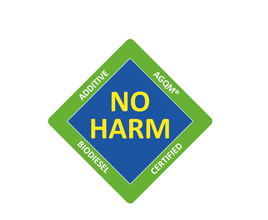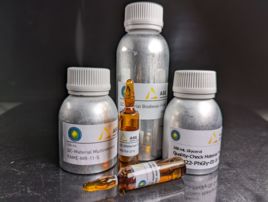
What is ‘Mixed Fatty Acids’?
‘Mixed fatty acids’ refers to the substance which is obtained as a by-product of biodiesel production immediately after transesterification and, depending on the process, consists of different quantities of free fatty acids, fatty acid methyl esters, glycerol and methanol. In addition, other contaminants, such as e.g. Alkali salts and water may also be contained.
Does Fatty Acid generated as a by-product of oil mill refining also come under the term ‘Mixed Fatty Acids‘?
No. Its origin, production process and composition are entirely different. That substance usually fulfills the requirements according to Annex IV/V of the REACh regulations necessary for exemption from the obligation to register.
Companies are recommended to support this delimitation by only using unmistakable trade names in everyday business. The stipulation of the substances’ uses or their restrictions is always connected with a concrete substance und has no influence on other substances.
How is ‘Mixed Fatty Acids‘ defined/registered?
Within the registration the substance name "Reaction mass of fatty acids, C16-C18, C18 unsaturated and fatty acids, C16-C18, C18 unsaturated, methyl esters" was defined for ‘Mixed Fatty Acids’. In this case, further constituents (alkali metal hydroxides, alkali metal salts) were considered as an contaminants/impurity in order to avoid splitting into several substances liable for registration.
Depending on the technology applied, products can differ strongly. Thus, in particular, for the methanol content a broad range of <1% - 4% is permissible. Work is currently underway on the joint registration to also describe a methanol content of between 4% and 8%. In order to be able to unite both cases in a Lead Registrant’s dossier, the Chemical Safety Report (CSR) must be issued with two chapters regarding the effect of the differing methanol contents, since they will have a significant effect on the risk features. Specification will be stipulated in the company-specific dossier as well as the safety data sheet (SDS) of the company concerned.
Is ‘Mixed Fatty Acids‘ subject to registration under REACH?
Under certain additional conditions fatty acids as pure substance are exempted from the obligation to register under REACh; however, ‘mixed fatty acids’ is no pure substance but a mixture consisting of various constituents and resulting from a chemical reaction. Therefore, exemption from the obligation to register is not applicable. In addition, the presence of methanol (and other constituents) may cause special risk features.
If ‘mixed fatty acid’ is treated and handled as waste there is no obligation to register it under REACH. The classification of a substance as waste results from the company’s statement towards the relevant authority that there is an ‘intention to dispose of’ the substance. However, all requirements according to waste legislation must be abided by such as handing over the substance to a waste management company accredited for the proper waste code number; furthermore, all monitoring and registration duties must be fulfilled.
Free marketing as merchandise in not permissible in that case.
Full registration or ‘Strictly Controlled Intermediate’ (SCI)?
Apart from the standard registration as (fully characterized) substance (Full Dossier), it is principally possible to also register as so-called ‘strictly controlled intermediate (SCI)’. The registration as SCI has the advantage of lower ECHA and LoA fees. At the same time, even after the substance has been dispensed, there is still a significant responsibility for the supplier:
• The requirements of ‚strictly controlled‘ must be maintained uninterruptedly beyond shipment and transport up to the processing of the substance.
• The recipient must convert the substance received into a new substance (so re-sale is excluded, for example).
• Use by final customers must be definitely excluded.
• The supplier is fully liable for the abidance by those requirements. Subject to private law and by means of a contract, he can commit the recipient to comply with the requirements; however, in case of non-compliance the supplier remains responsible as far as the enforcement authority is concerned.
In case of full registration those limitations do not exist. AGQM offer both registration alternatives to potential registrants.
Can ‘mixed fatty acids’ be considered a ‘mixture’?
In principle, a composition of the substances mentioned could also be regarded as a mixture in the sense of chemicals law. As a result, only the individual substances would have to be handled in accordance with REACH regulation. However, a mixture is defined as the intentional mixture of different substances according to a defined recipe, without any chemical transformation taking place between the mixed substances. In the present case it should be difficult to constitute ‘mixed fatty acids’ to be such an intended mixture of the pure substances. The technology description of transesterification, generally part of the operational permission for Biodiesel plants according to the German Emission Control Act (BImSchG), does neither list the constituent’s fatty acid or fatty acid methyl ester as pure substance input, nor does it contain a ‘mixing facility’ or stipulations concerning a mandatory recipe for the preparation of such a composition. Instead, ‘mixed fatty acid’ is a by-product as a result of parasitic chemical processes and cannot be isolated from the other constituents (biodiesel, methanol, etc.) without additional process steps.
Does the REACh registration of ‚mixed fatty acids‘ restrict the applicability of other legal regulations for this substance?
No. REACh has the objective to minimize the hazards of chemicals for humans and the environment and to also provide a supply guarantee within all of the EU/EEA.
Note:
The contents of the above explanations were made with the utmost care and with the best knowledge of the legal situation. Nevertheless, no guarantee can be given for the accuracy, completeness and timeliness of the content provided. It cannot be ruled out that individual circumstances may be interpreted differently, especially by enforcement authorities. For example, the design of waste legislation may be different in other European countries.
If you have any questions or remarks, please contact ernpu@ntdz-ovbqvrfry.qr.





